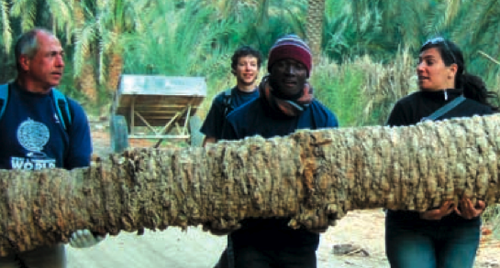
Recently, a new buzzword has appeared in the German youth programme scene: Intergenerational Learning. For me, the first thing that came to mind, is that this is already happening in IPPs: I remember loads of participants that described the challenges and opportunities of "older" participants in their IPP. Of course also other prgrammes have leaders that are beyond the usual 21-25 scope, and also in any village leaders and kids learn together, but in IPPs the participants - the very subjects of that programme - cover a wide range of age.
I wonder if intergenerational learning could be added to the official objectives of an IPP?
If it were, we would have to make sure, that indeed every IPP has participants from different generations, and that the issue is discussed, appreciated and evaluated during the programme. I don't think this is hard to achieve, and would give the programme another compelling element.

I have to say 'bridging the gap' (referring of course to the age/ adult vs JB) has been a hot topic in CISV Canada for quite a while and when I first started doing things nationally I would say was the most discussed topic at national meetings etc. Although this has been less of a discussion recently I would say this is still an issue within CISV and maybe something that could be helped through our programming.
I agree that intergenerational learning has been happening in IPP as a side effect of the programme. I also have heard of IPPs where they asked for a specific age group of participants however, which would of course limit this type of learning.
I would disagree it should be added as a objective, just because I don't really like mandating things and creating more stipulations (what happens if you don't fulfill the criteria? How much age diversity is enough?) I do agree however this should be given a bit more attention and recognized as a valid strength of the IPP. And, despite my previous comment, I wouldn't be opposed to having a guideline that we shouldn't be limiting the ages of IPP participants. Which would make sense, if we put a bit more value in the learning that can be provided by having a wide age range in participants.
I think the middle ground is to have projects, as the Canadian IPP was last year, where intergenerational culture is the educational theme for the IPP. That way it is something that is evaluated and a focus of the IPP (or any other program where it might be appropriate) but not built into the definition of the program. As I think was mentioned here before, that IPP in Toronto led to an interesting study of the "accomplishment" of IPP. Basically even if that particular IPP didn't accomplish a big shift in intercultural goals, it did accomplish a big change in intergenerational education. I think intergenerational learning is incredibly important in IPP - but no necessarily a requirement for a successful program - that is something dependent on the National Associations when they select their delegations.